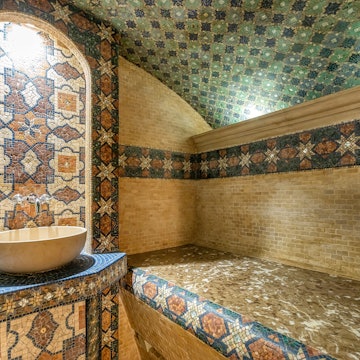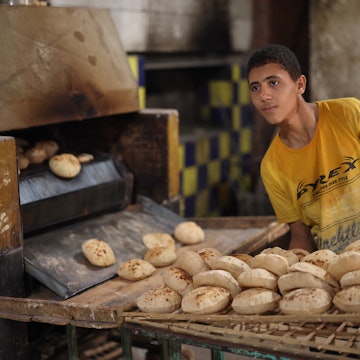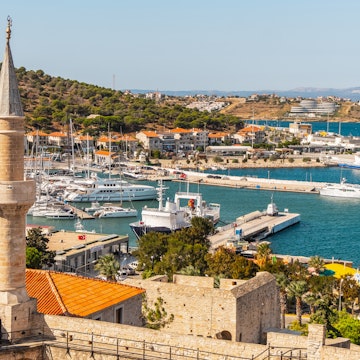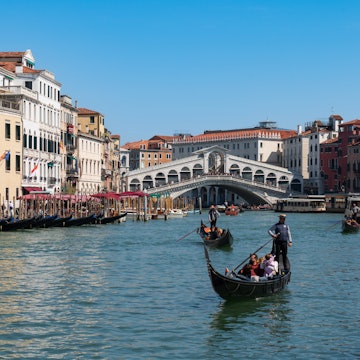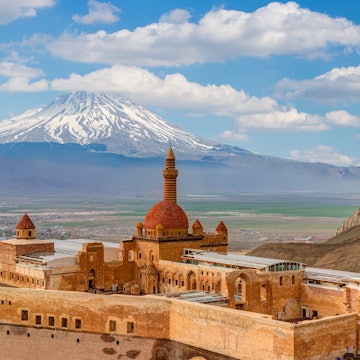
İstanbul shopping guide: the best markets, boutiques and malls

Aug 19, 2025 • 6 min read

Carpets for sale near the Grand Bazaar, İstanbul. NEKOMURA/Shutterstock
Shopping in İstanbul is so much more than the Grand Bazaar. Depending on the neighborhood in this Turkish metropolis, you'll find everything from concept stores to showrooms of local designers and lesser-known food markets that rival their touristic counterparts. Whether you’re shopping for a traditional carpet or colorful socks, you can find it in İstanbul – you just have to know where to look and which of the shopping backstreets hold something truly special.
Get lost in lanes of the Grand Bazaar
What can be said about the Grand Bazaar that hasn’t been said before? One of the world’s largest and oldest covered markets is a labyrinth of seemingly endless shops and the best way to experience it for the first time, is to just get lost and let serendipity and curiosity lead the way. Make sure to look up during your wandering to admire the arched ceilings and the recently restored intricate motifs, and arrive as early as possible to avoid the crowds, which can often make the bazaar difficult to enjoy. There will be ubiquitous invitations (in almost every language) from shop owners to enter their store and inspect their wares. If you’re not interested, politely decline. You’ll also have to be open to bargaining, as prices are never set, and you’ll have to face off against the seasoned experts. The popular joke here is that the shop owners of the Grand Bazaar could teach a course about bargaining at Harvard, which sums it up pretty well. Either way, don’t hesitate to respectfully say no if you feel the price is too high.
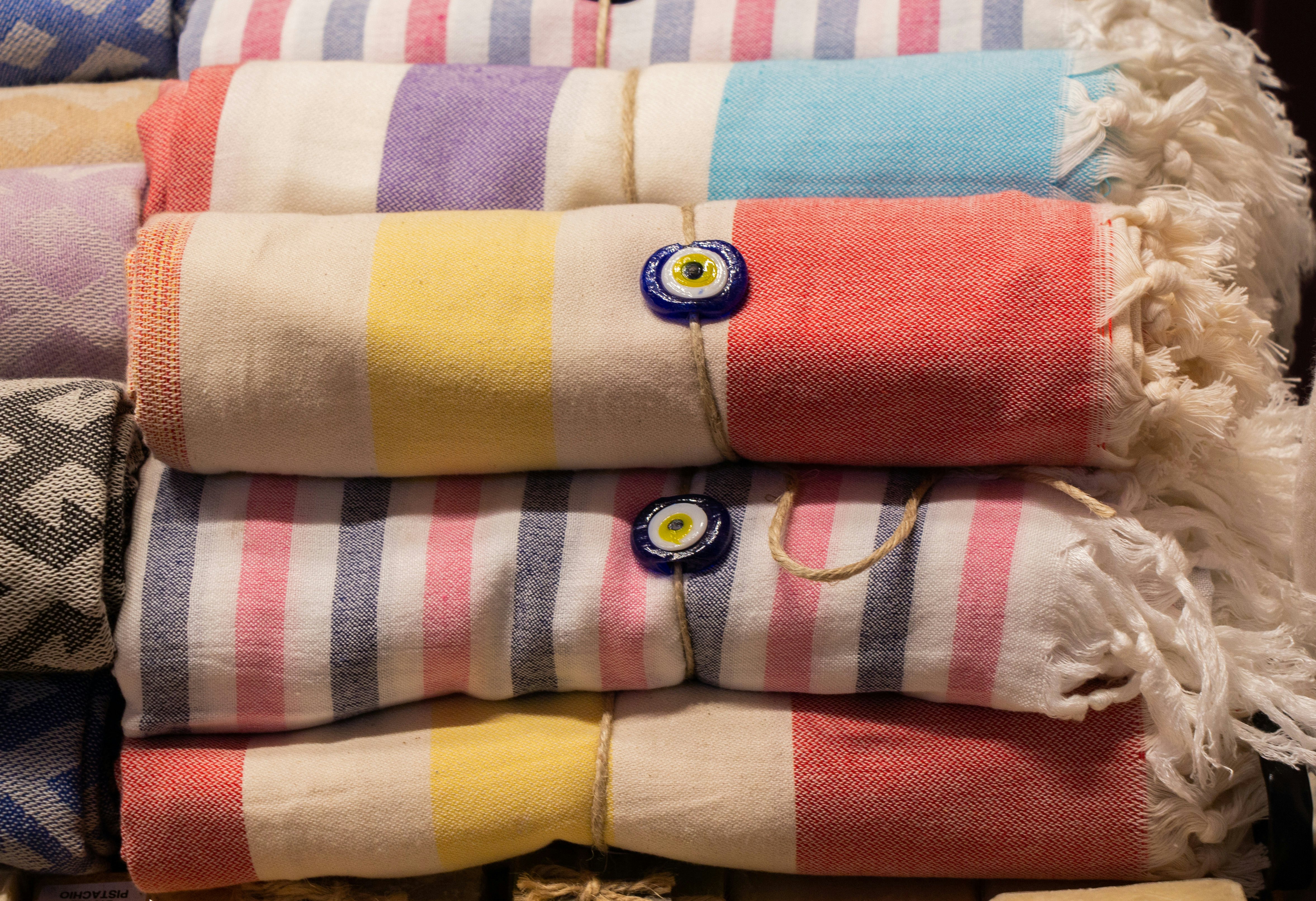
The Grand Bazaar’s most respected shops
If getting lost is not really your thing, you can beeline to the bazaar’s most respected stores for a curtailed shopping excursion, with a higher guarantee in terms of quality and price. For carpets from Anatolia and beyond visit Dhoku, Recep Karaduman and Şişko Osman. For Turkish textiles in all their handmade and colorful splendor go straight to Yazzma and Sivaslı İstanbul Yazmacısı and for high quality peştemal (hammam towels) and more visit Butik Çıkrık and Eğin Tekstil. Unique antiques can be found at Minyatür Antikacı, intricate caftans at Cashmere House, exquisite silver objects at Lale Sterling, traditional İznik ceramics at Iznik Pottery Art, and signed and estate jewelry Timuçin.
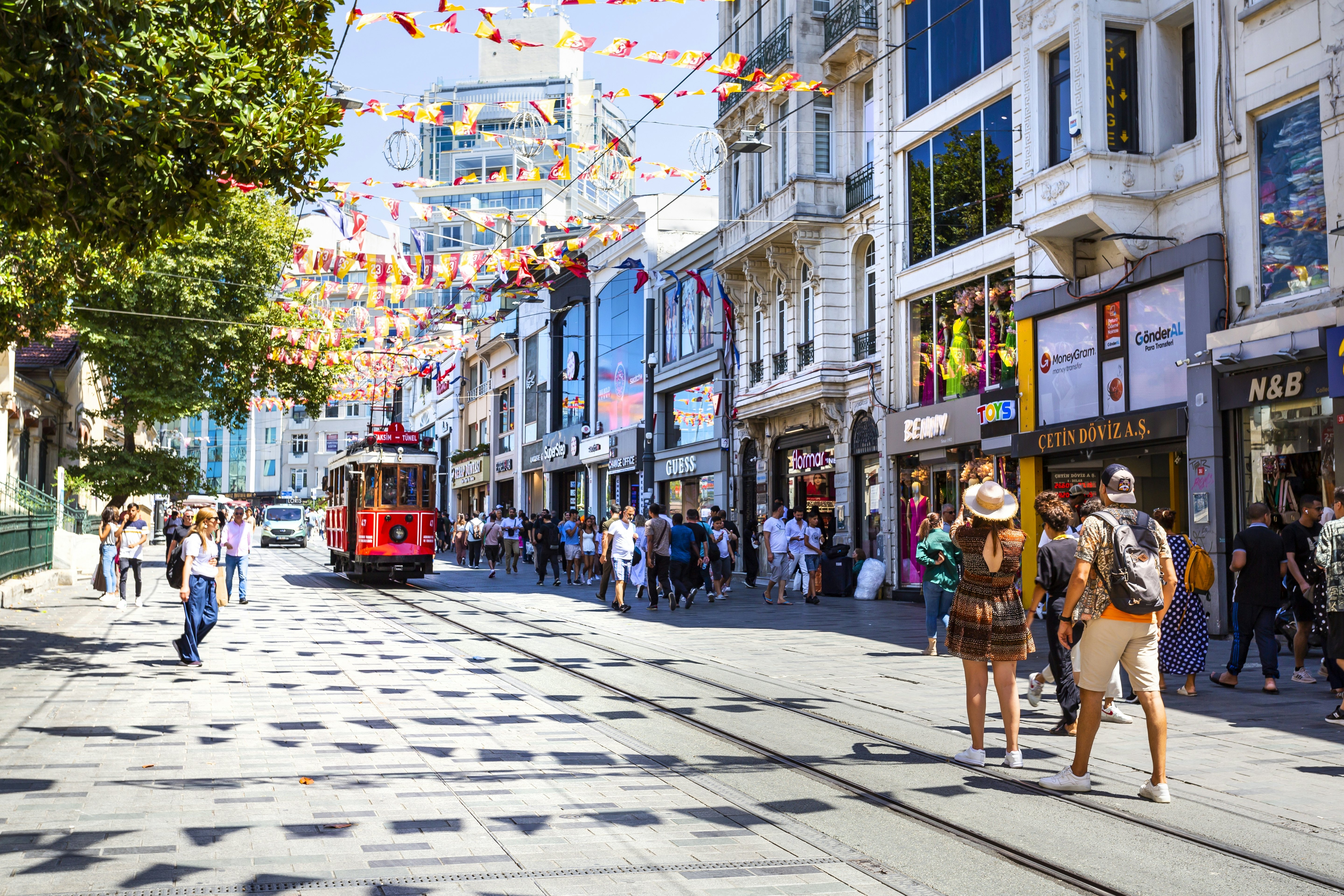
Shop for local designs in Beyoğlu
Beyoğlu's overcrowded avenue, İstiklal Caddesi, has its charms in the form of hidden arcades, churches, museums, and art galleries inside historic European architecture. However, the neighborhood's quieter backstreets that lead downhill are filled with the kind of shops that define Istanbul’s local design scene.
Stroll down the very cool Serdar-ı Ekrem St to visit the jewelry designer and goldsmith Banu Kent in her atelier and showroom Der Liebling for beauties like natural baroque pearl earrings embedded with stars and attached to golden flying swallows. Walk a bit further to visit Sofa Art and Antiques, owned by Kashif Bey, one of the city’s most respected collectors. Head downhill on Boğazkesen St and shop for Turkish home goods at Turkish Modern, contemporary home designs at Turkish designer Özlem Tuna’s eponymous shop, and cool sneakers and ware at the concept store Vitruta. And when you need a break, head to the nearby Çukurcuma Hamamı for the most comfortable and private Turkish bath experience.
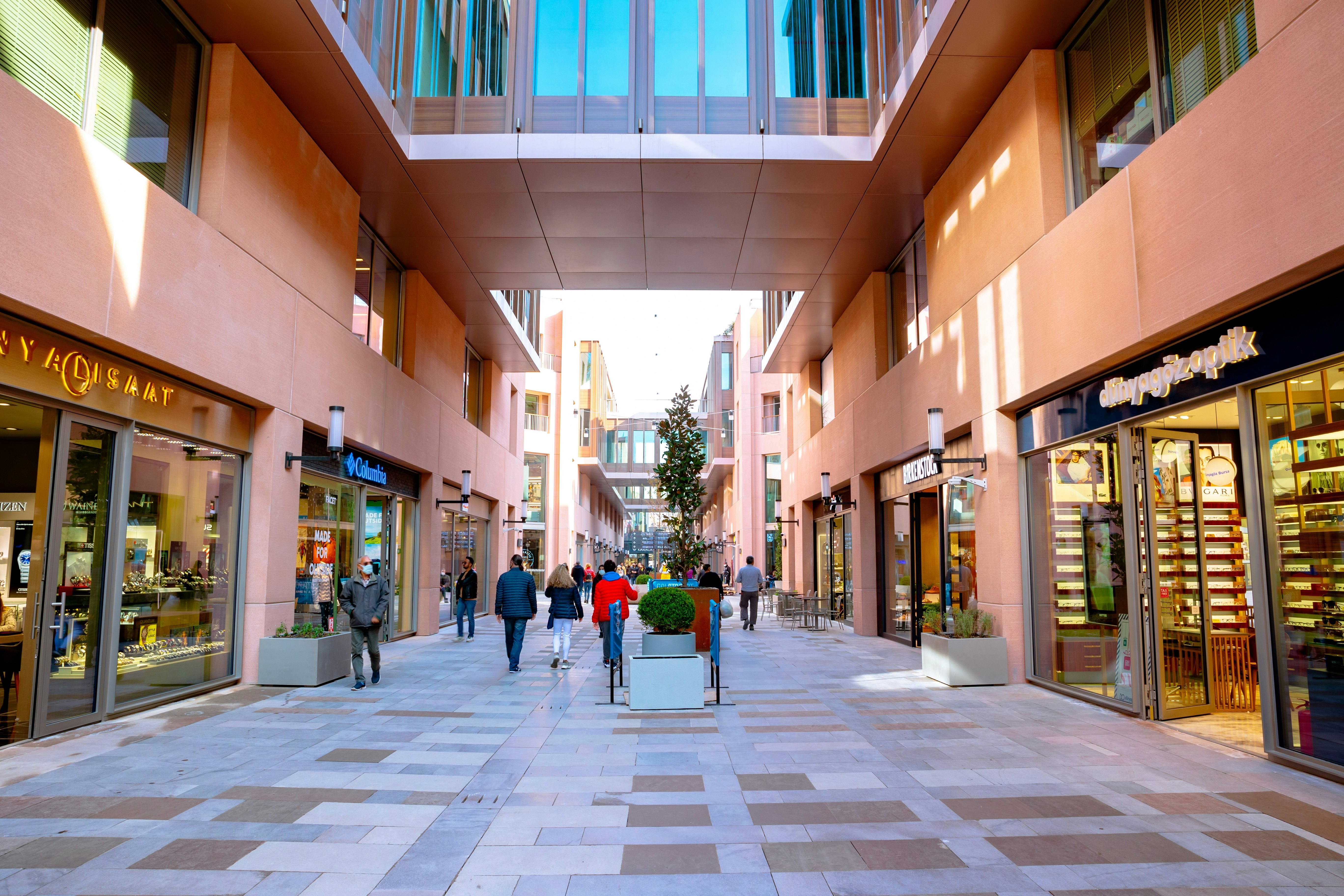
Visit Galataport for its waterfront mall
Istanbul locals have a love-hate relationship with Galataport: it has turned the Karaköy waterfront into a giant outdoor mall, but it has also opened up the seafront (which used to be blocked by historic but derelict buildings) with a public promenade. Here you'll find everything from the famous Karaköy Güllüoğlu baklava store to the most beautiful brance of Turkish luxury department store Beymen. Look out for more humble boutiques too, like Figg Brand with its modern interpretation of the classic Turkish çarık shoe.
Most importantly, the Galataport regeneration has given the city Istanbul Modern, a Renzo Piano-designed museum. Visiting this hub for Turkish contemporary art and its panoramic rooftop (where a shallow pool reflects the horizon) is vital, as is its shop, known for its excellent collection of design goods.
Insider tip: For lunch, skip the big mall restaurants and go to Lokanta Hayvore to eat authentic Karadeniz (Black Sea region) food. Also wonderfully removed from the tumult and still exuding the former vibes of Karaköy (when the area was up-and-coming and Galataport was not even an idea) is the very stylish menswear store Bey Karaköy, where penny loafers, silk scarves, colorful socks and sleek button-downs are all the rage.
Find unique creations in the workshops at Arif Pasha Apartment
One of the city’s first European style apartments, the Arif Pasha Apartment was built in the early 1900s for high-ranking individuals forced to leave the Ottoman palaces and wanting to continue living in comfort. Nowadays, its inner courtyard is a hidden paradise of ateliers with a central garden, where events and workshops are often held. The keepers of the courtyard are three creative women, each with their own space.
Make an appointment to visit ceramicist Tülin Bozüyük’s atelier and shop Touline Ceramics, where beautiful handmade plates (which grace the tables of some of Türkiye’s most respected fine-dining restaurants) reflect her background in ballet. Make another appointment to shop for hand-illustrated and printed textiles at Neslihan Algünerhan’s shop and atelier Nauna Linen. And if you’re in need of some energy cleansing, stop by Alkimia, a mystical shop owned by Aslı San Bilgin (founder of the 100% natural beauty brand Homemade Aromaterapi) with potions, tarot cards, herbs, candles, and other alchemy paraphernalia.
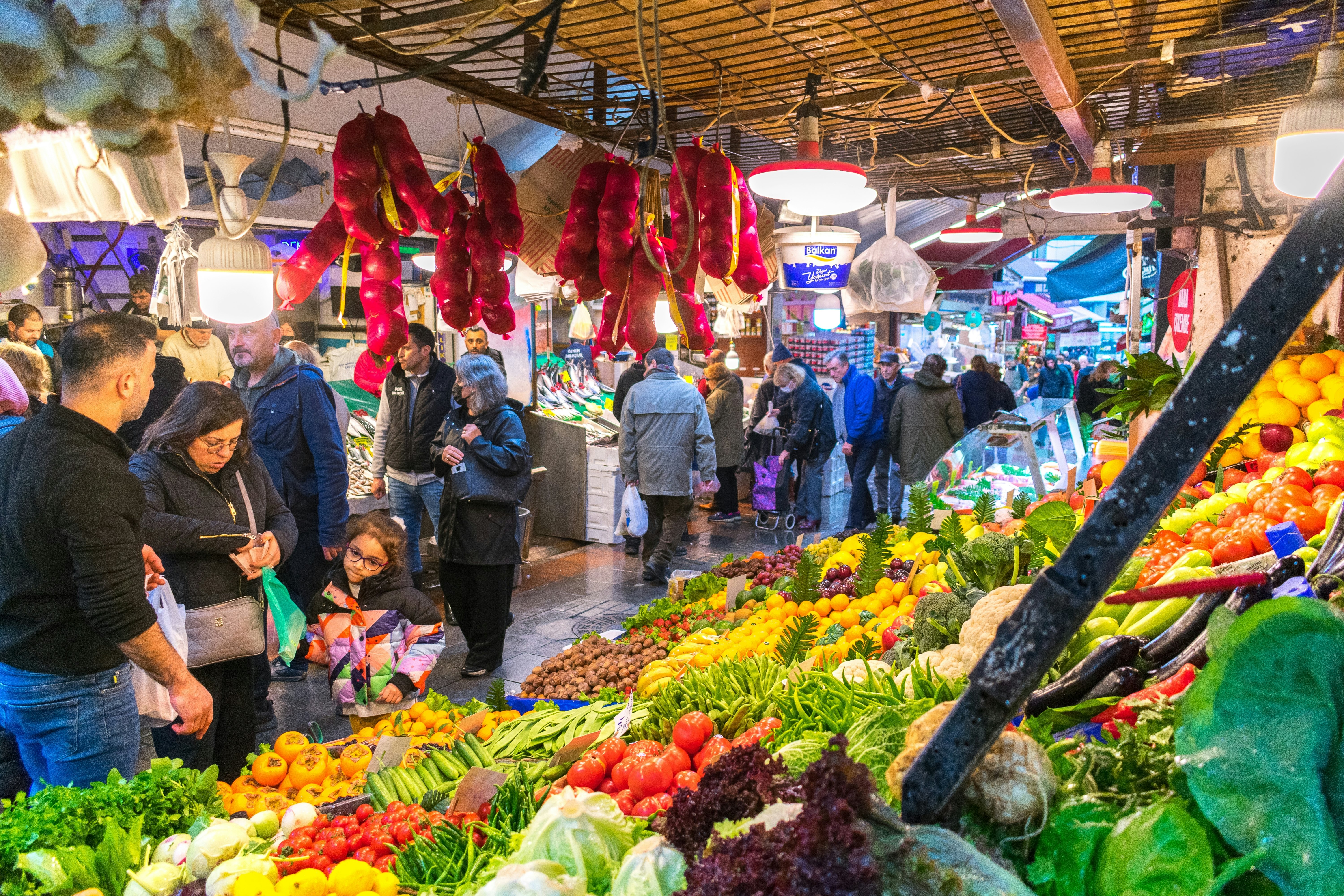
Buy food in the Kadıköy Market
The Kadıköy Market rivals the Egyptian Market (Spice Bazaar) with its network of streets filled with shops, vendors and eateries noticeably lacking major tourist crowds. Located on the befittingly not-so-touristy Asian side, the market is a place where locals come to shop for everything under the sun, be it fresh produce, fish, Turkish coffee, nuts and dried fruits, pickled vegetables, organic honey, regional cheeses and olives, and even offal. Whatever Turkish delicacy you’re looking for, you’ll likely find it at this market.
Local tip: Eat lunch at Çiya (either its kebab restaurant or its second restaurant across the street serving Anatolian homecooked dishes) both of which are excellent. And while you’re there, stroll your way through the bohemian Moda neighborhood, visit the house (now museum) of the late Anatolian rock music icon Barış Manço, and end the day watching the sunset from the beautifully renovated Moda Pier overlooking the Sea of Marmara.
Browse in Bebek for local and modern design
The neighborhoods that line the famous strait are some of the city’s most exclusive residential areas, dotted with iconic yalı (Ottoman era Bosphorus mansions) that have been photographed endlessly from the Bosphorus tour ferries. For shopping enthusiasts, the well-heeled district of Bebek has a solid selection of boutiques from local designers in and around its main avenue. Visit Yasemin Özeri’s eponymous shop (which also opened a branch in Bali) for elegant women’s clothing collections in minimal tones and flowing forms and Tru Perfect Basics for ethically made basic tops, bottoms, and swimwear for him or her. Last but certainly not least are two of Bebek’s longstanding stores, the charming bookstore Envai Bebek (which also has lovely souvenirs) and the concept store Midnight with its exceptional collection of clothing and accessories from local and international boutique brands. For something a bit more exotic, stroll the waterfront promenade all the way down to Arnavutköy to visit designer İpek Kocatepe Dumani’s store Bago Handicrafts and its sparkling collection of summer bags and clutches made from natural materials that support craftsmanship and artisans in the Philippines, Mexico, Brazil and Türkiye.








